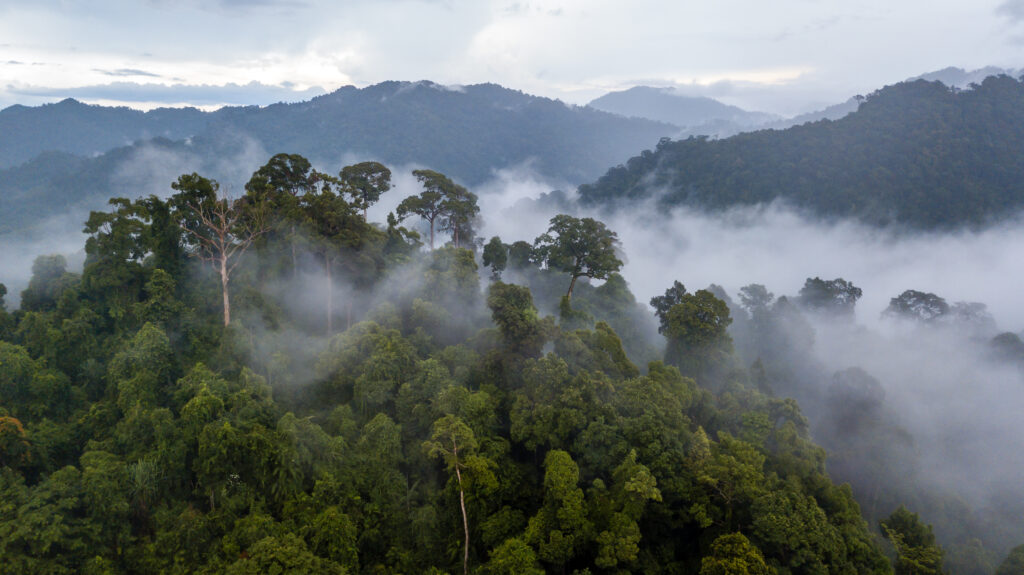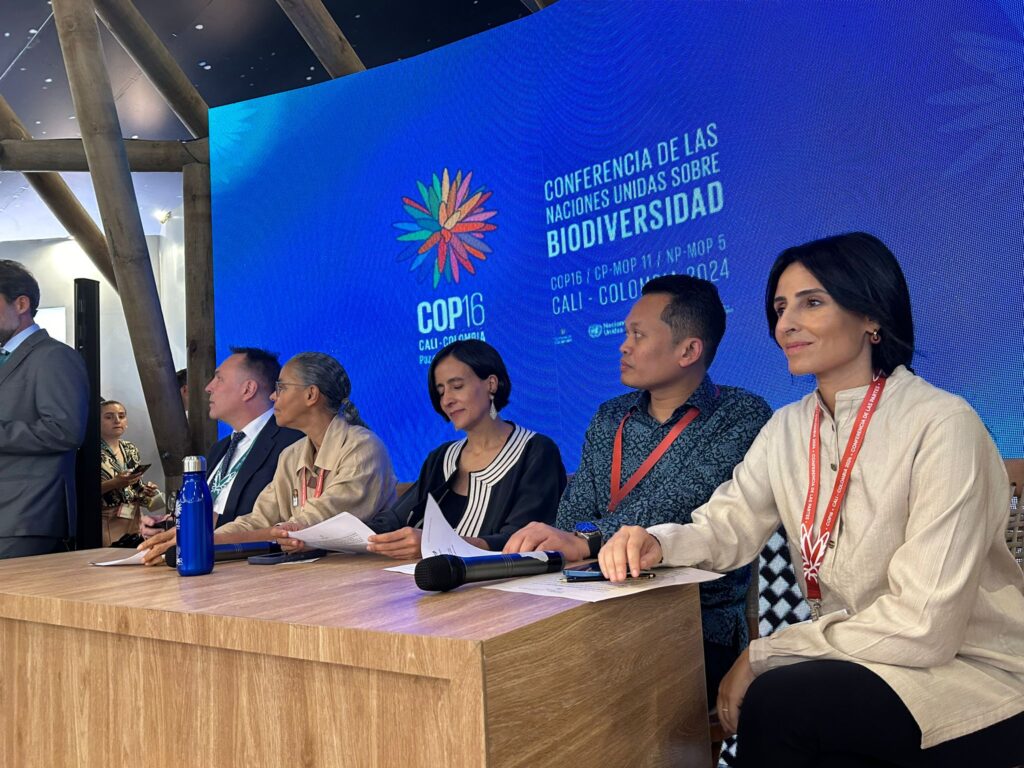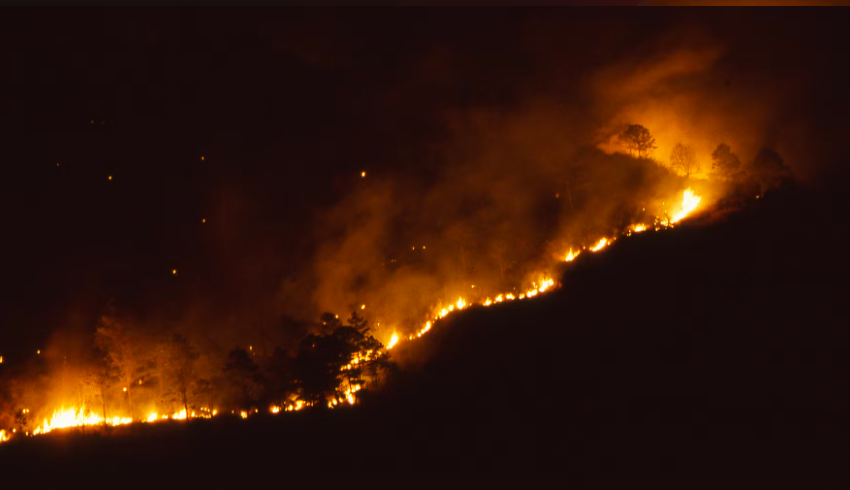Bolivia’s Diverse Forest Types and Unique Biodiversity Are at Risk
With more than half of its land area covered by forests, the stunning landscapes of Bolivia are home to some of the most biodiverse regions in the world. A significant portion of the northeastern third of the country is covered by humid lowland rainforest, part of the Amazon, where many of Bolivia’s Indigenous Peoples also reside.
Bolivia’s Diverse Forest Types and Unique Biodiversity Are at Risk
With more than half of its land area covered by forests, the stunning landscapes of Bolivia are home to some of the most biodiverse regions in the world. A significant portion of the northeastern third of the country is covered by humid lowland rainforest, part of the Amazon basin, where many of Bolivia’s indigenous peoples also reside.
However, Bolivia’s forests are disappearing at an alarming rate. Recent data reveals a troubling trend in forest cover loss, placing Bolivia among the countries experiencing the greatest area-based loss of primary tropical forests globally.
At the same time, Bolivia’s population ranks among the poorest in the Western Hemisphere. The country’s 36 Indigenous Peoples, in particular, face profound inequalities as their livelihoods in the forests are increasingly constrained by commercial interests or destroyed by wildfires. In 2024, wildfires in Bolivia burned an estimated 10 million hectares, 58% of which were forest areas.
Protecting the territories and rights of indigenous peoples in the forests has therefore been a cornerstone of Forests of the World´s work in Bolivia.
In both 2022 and 2023, Bolivia ranked third globally for primary tropical forest loss. Unfortunately, 2024 appears to be continuing this devastating trend.
Forests of the World in Bolivia
Forests of the World has been working in Bolivia since 2010. In Bolivia, we support the establishment and protection of Indigenous Peoples’ territories and rights. Additionally, we help create sustainable income opportunities from forests through activities such as harvesting wild cacao and producing essential oils, coffee, honey from wild bees, and other forest products.
Protecting the rights of Bolivia’s Indigenous Peoples is particularly crucial because the largest forest areas are located within Indigenous territories. While Indigenous rights are legally protected in Bolivia, they are often not enforced by the authorities. Therefore, Forests of the World collaborates with our partner organization, CEJIS, to ensure the recognition of Indigenous Peoples’ territories and human rights. We support the Chiquitano and Movima Peoples in developing sustainable forest management, conducting environmental monitoring of forests, and training young climate advocates to take ownership and promote the sustainable, commercial value of forests.
Forests of the World also works to improve conditions for tropical forests, particularly by preventing and combating forest fires. Training local fire brigades, raising awareness, upgrading equipment, using satellite data, and creating firebreaks are just some of the measures we employ. At the same time, we restore and rehabilitate forests where wildfires have already caused significant damage.
Projects in Bolivia

Forest Restoration in Bolivia
In 2019 and 2020, Bolivia experienced some of the worst forest fires in its history. With support from the Erik Kauffeldt Foundation, Forests of the World launched a restoration project aimed at recovering 6,000 hectares by September 2024 in the Monte Verde territory of the Chiquitano Forest. By the end of 2023, 13,863 hectares had been restored through reforestation and protection efforts. The project’s success has been so significant that the Ministry of Foreign Affairs, a key partner, has allocated additional funding to further the initiative.
Fire Prevention with Tangible Results
As part of our efforts in areas particularly vulnerable to forest fires, Forests of the World implements fire prevention measures. In Bolivia, our collaboration with the Indigenous Chiquitano People has led to a remarkable 59% reduction in areas affected by wildfires between 2021 and 2022.


Wild Cacao and Honey
Forests of the World and our Bolivian partner organization, CEJIS, collaborate with the Indigenous Movima people to produce wild cacao. In Monte Verde, we work with the Chiquitano people to protect two threatened native bee species for sustainable honey production. The overarching goal is to provide Indigenous communities—especially women—with income and improved livelihoods through alternative value chains while safeguarding forests and their biodiversity.
Forests of the World´s Partners in Bolivia

Apoyo para el Campesino del Oriente de Bolivia (APCOB)
APCOB is a Bolivian NGO that has been working for 40 years to promote the development and collective rights of Indigenous Peoples in Bolivia’s lowlands. Their work includes contributing to social welfare, citizen participation, and the management of Indigenous Peoples’ territories and the environment through research, technological innovation, training, communication, consulting, and advocacy.
Since 2014, APCOB has collaborated with Forests of the World to support the Chiquitano people in the Monte Verde territory (covering 947,447 hectares) and the Monkoxi people in the Lomerio territory (covering 259,188 hectares). The main areas of collaboration include securing rights, forest monitoring using drones and satellites, strengthening local organizations, climate change adaptation, promoting agroforestry and sustainable production, and forest management and restoration of forests damaged by fires.
Through our partnership with APCOB, we have strengthened the organizational and territorial capacities of the Chiquitano and Monkoxi peoples, while also providing them with the technical tools to produce more climate-resilient products and improve preparedness for climate change.

Centro De Estudios Jurídicos e Investigación Social (CEJIS)
CEJIS works on the management of indigenous territories, strengthening territorial governance structures and institutions, as well as promoting and protecting human rights.
Since 2011, CEJIS has collaborated with Forests of the World, and since 2015, we have jointly implemented projects in the region.
These efforts have been carried out in two geographical areas: the indigenous territories of Monte Verde (covering 947,447 hectares) and the Movima territory (covering 66,964 hectares), home to the Movima People.
The initiatives have focused on territorial governance, legalization of territories, value chain analyses, agroforestry, wild cacao production, and forest monitoring.
Our partnership with CEJIS has helped strengthen local governance capacities in Monte Verde and the Movima territory. It has also fostered opportunities for dialogue, technical training programs, and the development of productive alternatives rooted in indigenous knowledge and local empowerment.


